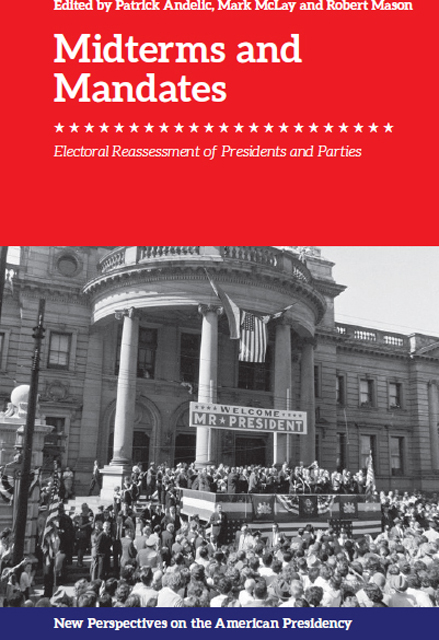Book contents
- Frontmatter
- Contents
- List of Figures and Tables
- Acknowledgements
- Notes on Contributors
- Preface: Why Midterms Matter
- Introduction: Midterms and Mandates, Presidents and Parties
- Part One Midterm Elections in Institutional Context
- Part Two Testing the New Deal Coalition
- Part Three The Republican Resurgence
- Index
1 - Presidents and Midterm Loss
Published online by Cambridge University Press: 07 June 2023
- Frontmatter
- Contents
- List of Figures and Tables
- Acknowledgements
- Notes on Contributors
- Preface: Why Midterms Matter
- Introduction: Midterms and Mandates, Presidents and Parties
- Part One Midterm Elections in Institutional Context
- Part Two Testing the New Deal Coalition
- Part Three The Republican Resurgence
- Index
Summary
‘Well, we made history last night. Call it what you want: an earthquake, a tidal wave, a blowout. We got our butts kicked.’ So said the chair of the Democratic National Committee on 9 November 1994, after his party lost its majorities in both chambers of the US Congress for the first time in forty years. ‘A lot has changed since yesterday,’ a stunned President Bill Clinton soon told reporters.
A dozen years later, it was President George W. Bush’s turn for chagrin after the Republican Party lost thirty seats in the House and six in the Senate to cede the GOP’s majorities back to the Democrats. ‘It was not too close,’ he conceded. ‘It was a thumping.’ Yet the thumping would get even louder in 2010. When Democrats lost more than sixty House seats that November, President Barack Obama was driven to the thesaurus. He settled on ‘shellacking’ – concluding that ‘some election nights are more fun than others’.
And in fact, for presidents, midterm elections rarely provide a fun evening. The ‘midterm’ refers to regularly scheduled congressional elections that occur at the halfway point of a presidential administration. Because a member of the US House of Representatives serves for two years, and a member of the Senate for six years, every election taking place at the president’s midterm has all 435 House seats and one-third of the 100 Senate seats on the ballot. There are state and sometimes local races piggy-backed on that federal election as well: for governor, attorney general, treasurer, auditor, and the like, as well as statewide referendums and thousands of state legislative seats. All this adds up to a high-stakes day for politicians at all levels – and one that has come to serve as a verdict of sorts on the sitting administration. And though some presidents are surely performing better than others at that point in their term, the president’s party almost always gets a thumbs-down from the nation’s voters. ‘Historically, the president, you don’t tend to do so well in the midterms,’ President Donald Trump told a reporter in October 2018, a month before his own. While Trump then predicted, ‘I think we’re gonna do well’ – and after the fact asserted ‘we did unbelievably well’ – the facts were, as usual, on history’s side.
- Type
- Chapter
- Information
- Midterms and MandatesElectoral Reassessment of Presidents and Parties, pp. 17 - 53Publisher: Edinburgh University PressPrint publication year: 2022



